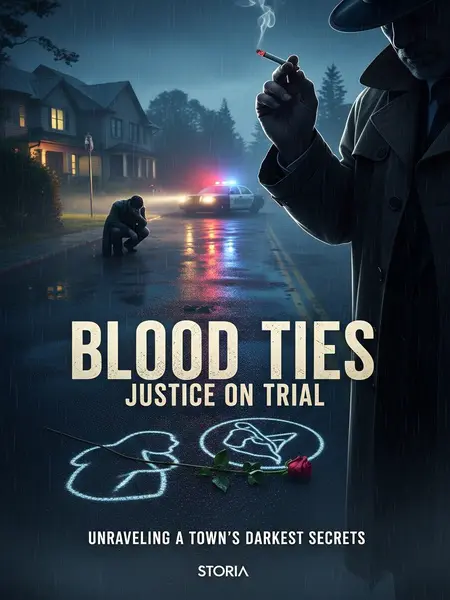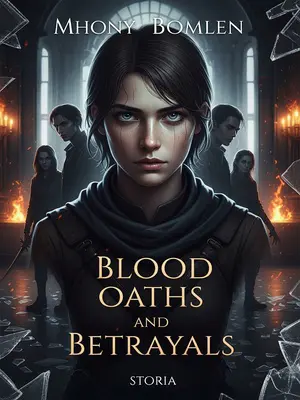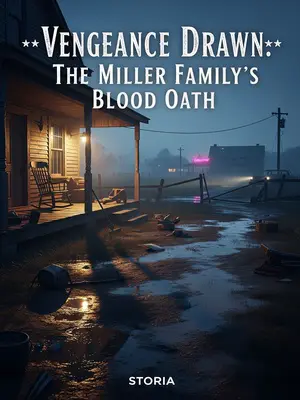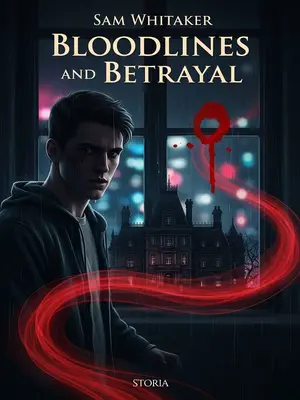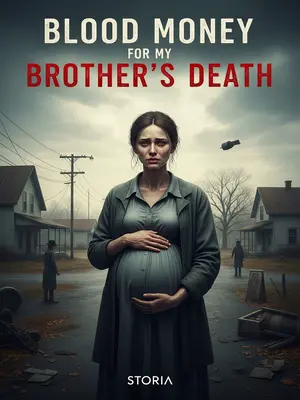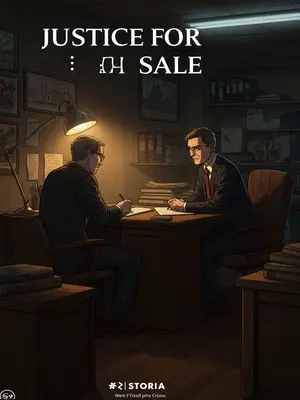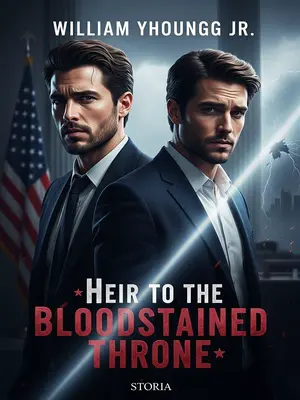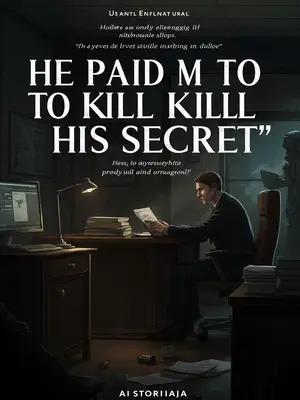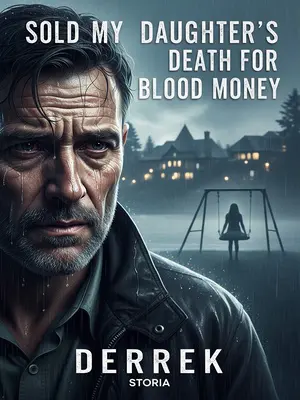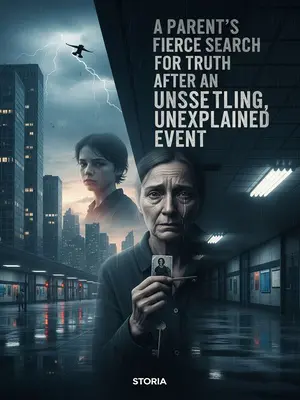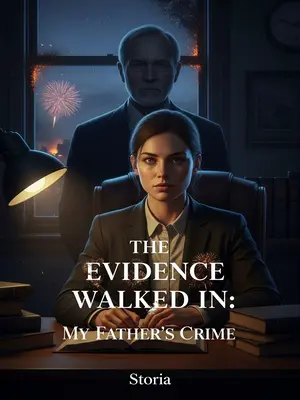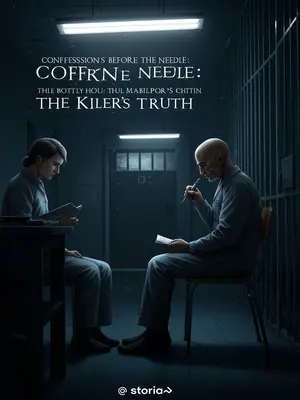Chapter 2: The Suspect with a Silver Spoon
The ME’s hands trembled as he lifted her, his voice cracking as he called out the time of death. The silence in the room was absolute—no one dared speak.
Her tiny arms must have been broken in the assault, as her hands hung limply, like two soft towels.
Her fingers curled slightly, the way babies do when they sleep. But there was no life left in them. The sight was so wrong, so unnatural, it made my throat close up.
It’s impossible to imagine how anyone could inflict such cruelty on a baby.
No one in that room could wrap their heads around it. We’d all seen evil, but this was something different—a level of depravity that felt almost inhuman. I felt my fists clench, nails digging into my palms.
Everyone in the room was fighting to hold it together. The child’s father was on the verge of a breakdown. Maybe returning his daughter to her crib was his final act of tenderness.
Michael sat on the floor, rocking back and forth, whispering Savannah’s name. He looked up at us, eyes hollow, begging for answers we couldn’t give. It was all we could do to keep our composure, to focus on the work that needed doing.
We immediately reported the case to our superiors, who gave it the highest priority.
Captain Harris was on the line within minutes, his voice grim but steady, barking orders, even over the phone. He told us to secure the scene, start canvassing neighbors, and not let anyone—press, politicians, nobody—interfere. The whole department felt the weight of this one.
But in fact, the investigation itself wasn’t especially complicated.
The brutality of the crime left a trail a mile wide. There was no careful planning, no attempt to cover his tracks. It was as if the killer didn’t care if he was caught—or thought he couldn’t be touched.
Besides the bodies, we conducted a thorough crime scene search and collected evidence.
We dusted for prints, bagged every scrap of clothing, every hair, every fiber. The evidence techs worked in silence, faces set in grim determination. Even the rookie on the team moved with a quiet professionalism I hadn’t seen in him before.
Even so, the process was emotionally draining for us investigators.
Every bag of evidence felt like it weighed a ton. Every photograph taken was another wound. When we stepped outside for air, we just stood there, staring at the sky, unable to speak.
A family portrait of the three still hung on the living room wall. In it, Savannah was only two or three months old, lying in her mother’s arms, smiling sweetly.
The photo was framed in cheap plastic, a little crooked. Lillian’s eyes sparkled, Michael looked proud, and Savannah’s gummy smile lit up the whole scene. I found myself staring at it, wishing things could go back to that moment.
Both parents were smiling too.
It was a snapshot of happiness, the kind you take for granted until it’s gone. I could almost hear their laughter echoing through the apartment.
Wedding photos sat on the TV stand, stuffed animals were scattered on the sofa—reminders of how much love used to fill this place.
There was a half-empty bottle on the coffee table, a stack of bills pushed aside, a baby monitor blinking quietly. The life that had filled this place was everywhere you looked, and now it all felt unbearably empty.
Now, all of that was gone.
The silence in the apartment was suffocating, broken only by the occasional creak of the floorboards. It was as if the whole place was holding its breath, waiting for something that would never come.
The only survivor, Michael Grady, was so distraught he had to be forcibly sedated in the hospital.
He fought the EMTs at first, screaming and thrashing, trying to push them away, but eventually he collapsed, sobbing. The paramedics gave him a sedative, and he was taken away on a stretcher, still calling for his wife and daughter.
During our investigation, we found numerous unfamiliar shoeprints, fingerprints, and hairs at the scene. The perpetrator had made no effort to conceal his presence.
The prints tracked mud across the carpet. The hairs were a different color than anyone in the family. There were fingerprints on the doorknobs, the kitchen counter, even the baby’s crib. It was almost as if he wanted us to know he’d been there.
Because the building lacked its own surveillance, we relied on the street cameras downstairs to identify the suspect’s appearance and confirm his identity.
We pulled footage from the gas station across the street and the corner bodega. Grainy video showed a young man in a red hoodie, slouching as he walked, glancing over his shoulder. It was enough to start building a timeline.
His name was Tyler Whitman, nineteen years old, about five foot eight, a senior at the local high school.
He was a familiar face to some of the officers—a kid who’d gotten into trouble before, always seemed to skate by thanks to his last name. He looked younger than nineteen, with a mop of brown hair, always biting his nails or bouncing his knee.
At his age, he should have graduated, but that was irrelevant to the case for now.
Rumor had it he’d bounced around different schools, never quite fitting in. Still, his academic history was the least of our worries at that moment.
He had a history.
Everyone in town knew the Whitman name. Tyler’s father, Charles, was the kind of man who sponsored little league teams and got his picture in the paper at charity galas. But behind the smiles, there was always talk of favors called in, deals made behind closed doors.
His mother had died young; he was raised by his father, Charles Whitman, the owner of the city’s largest real estate development company.
Charles was a big fish in a small pond, always dressed sharp, always with a firm handshake. Folks said he was generous to his friends and ruthless to his enemies. Tyler was his only son, and people whispered he could do no wrong in his father’s eyes.
But since Tyler Whitman was legally an adult, we weren’t required to notify his family before arresting him.
We double-checked the law. Made sure our ducks were in a row. Tyler was nineteen—no need to call Daddy first. It was a small but crucial detail, one that would matter in the days to come.
That night, we decisively arrested Tyler Whitman.
We found him at a smoky barbecue joint a few blocks from the high school, laughing with a group of kids, a beer in hand. He didn’t look like someone who’d just committed a monstrous crime. He looked like any other kid blowing off steam after finals.
At the time, he was eating and drinking with classmates at a barbecue joint near the school, as if the day’s gruesome crime had nothing to do with him.
He joked with the waitress, flirted with a girl from his math class. When we approached, he barely looked up, assuming we were there for someone else. The moment he realized we were there for him, his face drained of color.
When we detained him, he protested loudly, insisting he didn’t know why he was being arrested.
He pushed back, voice cracking, eyes wide. "You’ve got the wrong guy! What the hell is this?" The other kids stared, silent, unsure whether to intervene or stay out of it.
By the time we got him out of the squad car, he was sobbing uncontrollably, nearly unable to stand.
